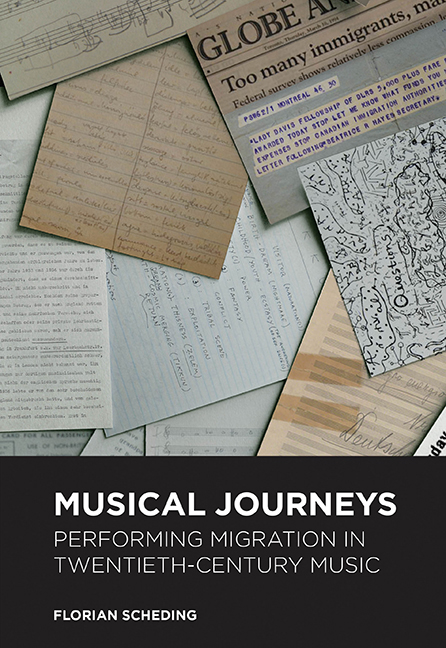2 - Facing the Nation
Published online by Cambridge University Press: 19 March 2020
Summary
THE nation and the migrant seem to form an uneasy relationship. Edward Said constructs the migrant as the other to the nation, suggesting that the nation ‘fends off exile, fights to prevent its ravages’. Migration studies are frequently anxious about the nation and nationalism as a concept. Nina Glick Schiller and Ulrike Meinhof, for example, advocate a paradigm shift away from what they call methodological nationalism towards transnational approaches that blur the migrant–native divide. In a similar vein, Homi Bhabha has called for ‘a more transnational and translational sense of the hybridity of imagined communities’. As I have argued elsewhere, studies focusing on individual migrants or migrant communities tend to eschew engagement with the (host) nation and stress concepts such as diaspora and exile instead. The story of the refugees from fascism has been increasingly well documented, with studies usually seeking to highlight the exilic or diasporic status of the displaced. Conversely, as Thomas Nail has identified, history continues to prioritise places and is narrated foregrounding national borders, thus excluding the migrant as ahistorical. Mainstream music studies, too, afford the nation a central role and struggle to integrate migrants into historicisations of national musics. Scholarship on British twentieth-century music, for example, frequently ignores migrant voices or mentions them only in passing. Where they are included, authors often isolate their stories from the main narrative, placing them in separate chapters and emphasising their exilic status and their non-belonging.
While nationalist historiographical approaches to music fixated on place are ill-equipped for addressing creative responses of musical migrants, narratives that dispense with the national altogether fail to grasp the complex nexus of identity politics at play. For migrants constantly encounter nations, perhaps more than those who do not move. On an everyday level, migrants deal with the nation as it manifests itself bureaucratically, from the moment of border- crossing to the applications for work permits, visas, residence, and so on. (The next chapter addresses some of these workings, focusing on how national institutions such as the BBC treated migrants.) On a less mundane but equally obvious level, it is the very existence of nations and their insistence on borders that have created transnational migrants, certainly during the period covered in this book. Modernity is marked by the increase in border structures that go beyond physical objects that follow a line on a map.
- Type
- Chapter
- Information
- Publisher: Boydell & BrewerPrint publication year: 2019



